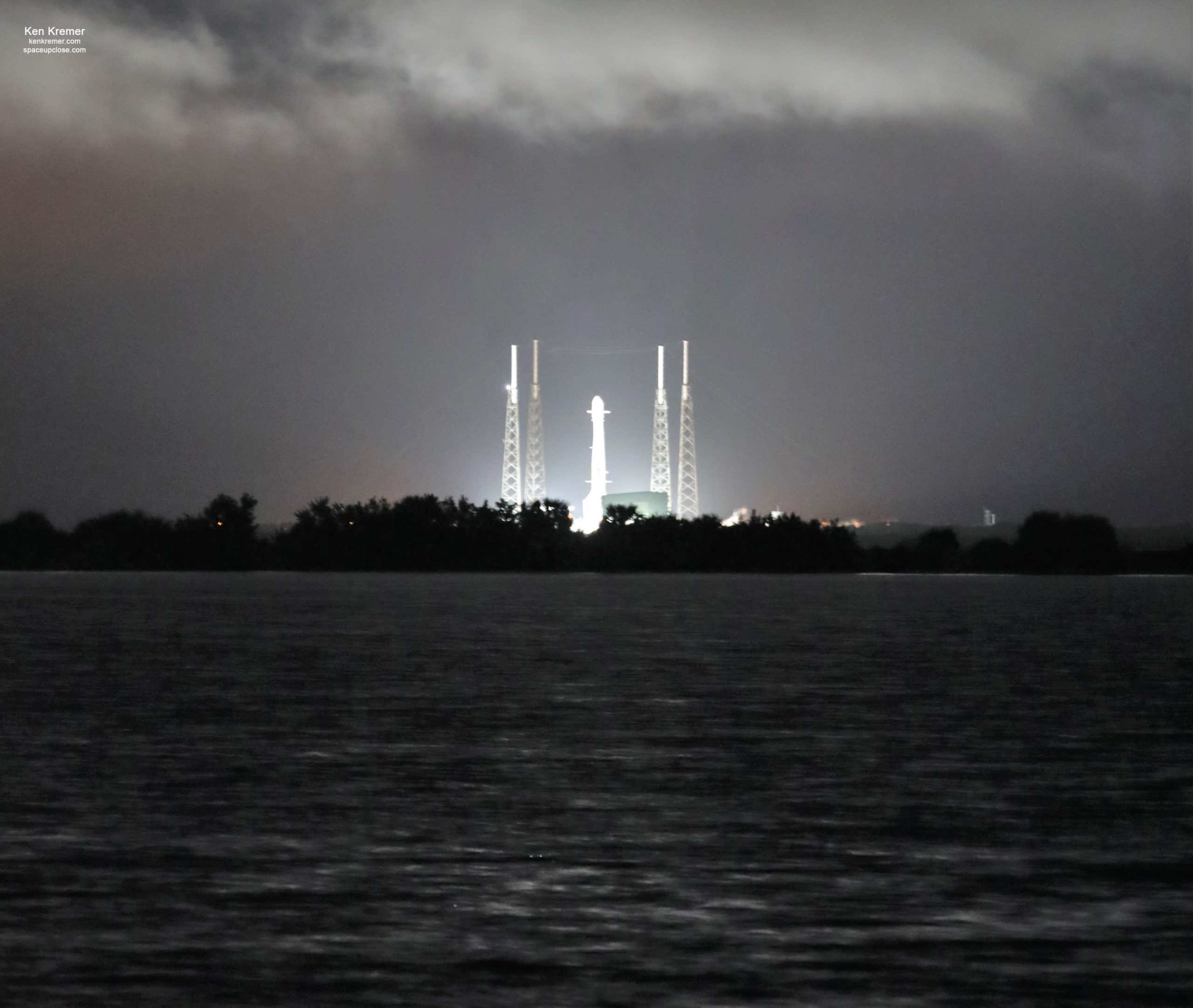
For SpaceUpClose.com & RocketSTEM
CAPE CANAVERAL AIR FORCE STATION, FL – Following Sunday nights, Nov. 22, scrub to further scrutinize ‘mission assurance’ data for closer examination and a weather delay Monday afternoon, Nov. 23, SpaceX is retargeting the nighttime liftoff of a ‘fleet leading’ veteran Falcon 9 rocket carrying the next batch of Starlink broadband internet satellite to orbit to Tuesday evening, Nov. 24, using a milestone 1st stage booster that counts as the first one to be flown seven times!
Sunday nights launch attempt was scrubbed for “mission assurance” reasons just around at the moment where the poll for launch would have approved a GO for propellant loading.
The GO was not given and Space initially targeted 24 hour postponement to Monday evening with the warning that booster recovery condition were not exactly promising.
Standing down from today’s launch of Starlink. Rocket and payload are healthy; teams will use additional time to complete data reviews and are now working toward backup opportunity on Monday, November 23 at 9:34 p.m. but keeping an eye on recovery weather
— SpaceX (@SpaceX) November 23, 2020
“Now targeting Tuesday, November 24 at 9:13 p.m. EST for Falcon 9’s launch of Starlink, when weather conditions in the recovery area should improve,” SpaceX tweeted
Now targeting Tuesday, November 24 at 9:13 p.m. EST for Falcon 9’s launch of Starlink, when weather conditions in the recovery area should improve
— SpaceX (@SpaceX) November 23, 2020
SpaceX is targeting Tuesday November 24 at 9:13 p.m. EST (0213 GMT) for launch of its sixteenth Starlink mission from Space Launch Complex-40 on Cape Canaveral Air Force Station, in Florida carrying 60 Starlink broadband internet satellites satellites to low earth orbit during an instantaneous launch window.
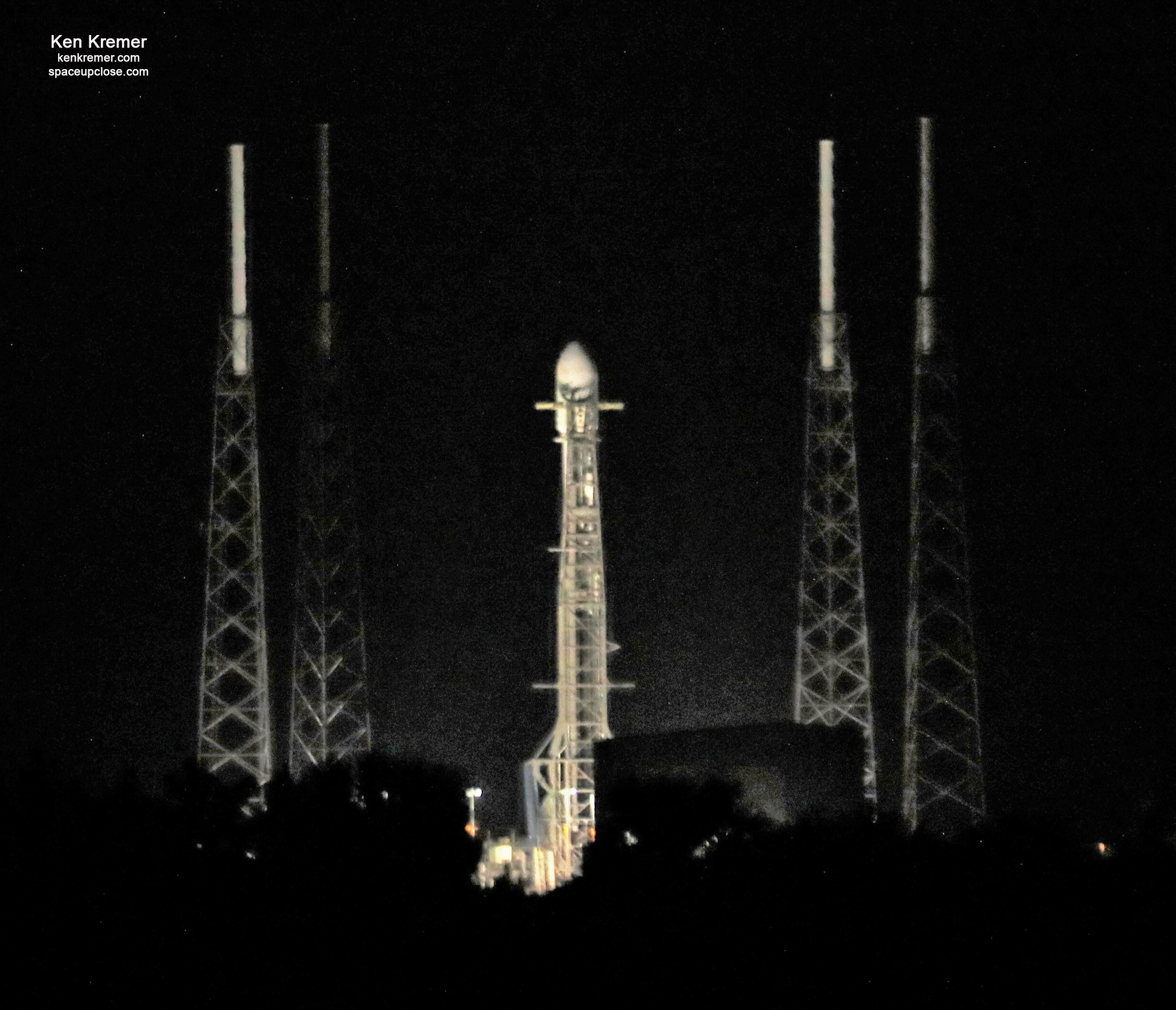
If the skies stay clear Starlink will put on a sure to be spectacular show of this 7th time flown ’fleet leading’ first stage B1049.6 for space fans and more spectators – an uplifting event amidst a third wave of Coronovirus pandemic cases afflicting our nation and the world.
Furthermore both payload fairing halves are also reflown from prior missions following recovery.
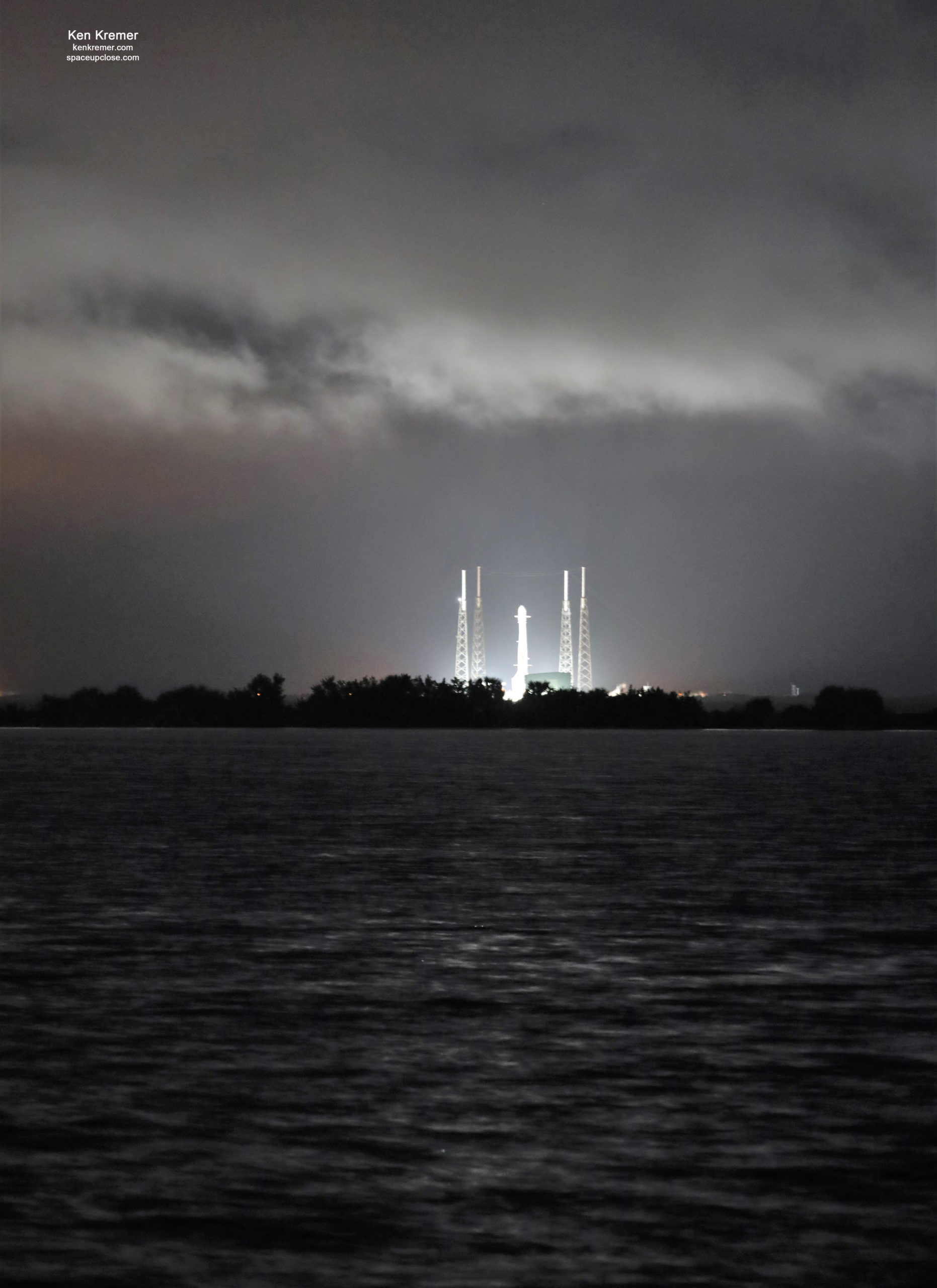
SpaceX will webcast the Falcon 9 launch live starting about 15 minutes before the planned liftoff:
You can watch the launch webcast here: spacex.com/launches
Enjoy our eyewitness photos of the Falcon 9 on the launch pad and prior static fire test at Space UpClose.
The weather prognosis is good.
At this time the Air Force meteorologists team at the 45th Weather Squadron is forecasting a 80% chance of acceptable conditions at launch time on Tuesday, Nov. 24.
This 16th Starlink launch designated as Starlink 15 mission is targeted for just over a week after the Crew-1 mission launching 4 astronauts from the US and Japan on a six month science mission to the international Space Station.
The liftoff also takes place a few days after SpaceX’s successful delivery to orbit of the NASA ESA Sentinel-6 Michael Freilich oceanography sea level rise mapping satellite from Vandenberg Air Force Base, Calif earlier Nov. 21.
The prior liftoff of the then 6x flown veteran, record setting SpaceX Falcon 9 booster B1049.6 took place Aug. 18 at 10:31 a.m. EDT on the eleventh Starlink mission from Space Launch Complex 40 (SLC-40) at Cape Canaveral Air Force Station in Florida.
Falcon 9’s first stage B1049.6 previously supported the Telstar 18 VANTAGE mission in September 2018, the Iridium-8 mission in January 2019, and four separate Starlink missions in May 2019, January 2020, June 2020 and most recently 18 Aug. 2020.
The ever expanding Starlink constellation currently numbers approximately 895 refrigerator sized broadband internet relay satellites launched to orbit and aimed at serving rural and underserved areas across the globe – where service is “unreliable, expensive, or completely unavailable.”
However quite a few have been deorbited for a variety of reasons – thus the true number of Starlinks in orbit is estimated at about 810 to 850 or so.
There are no rideshare payloads on this flight.
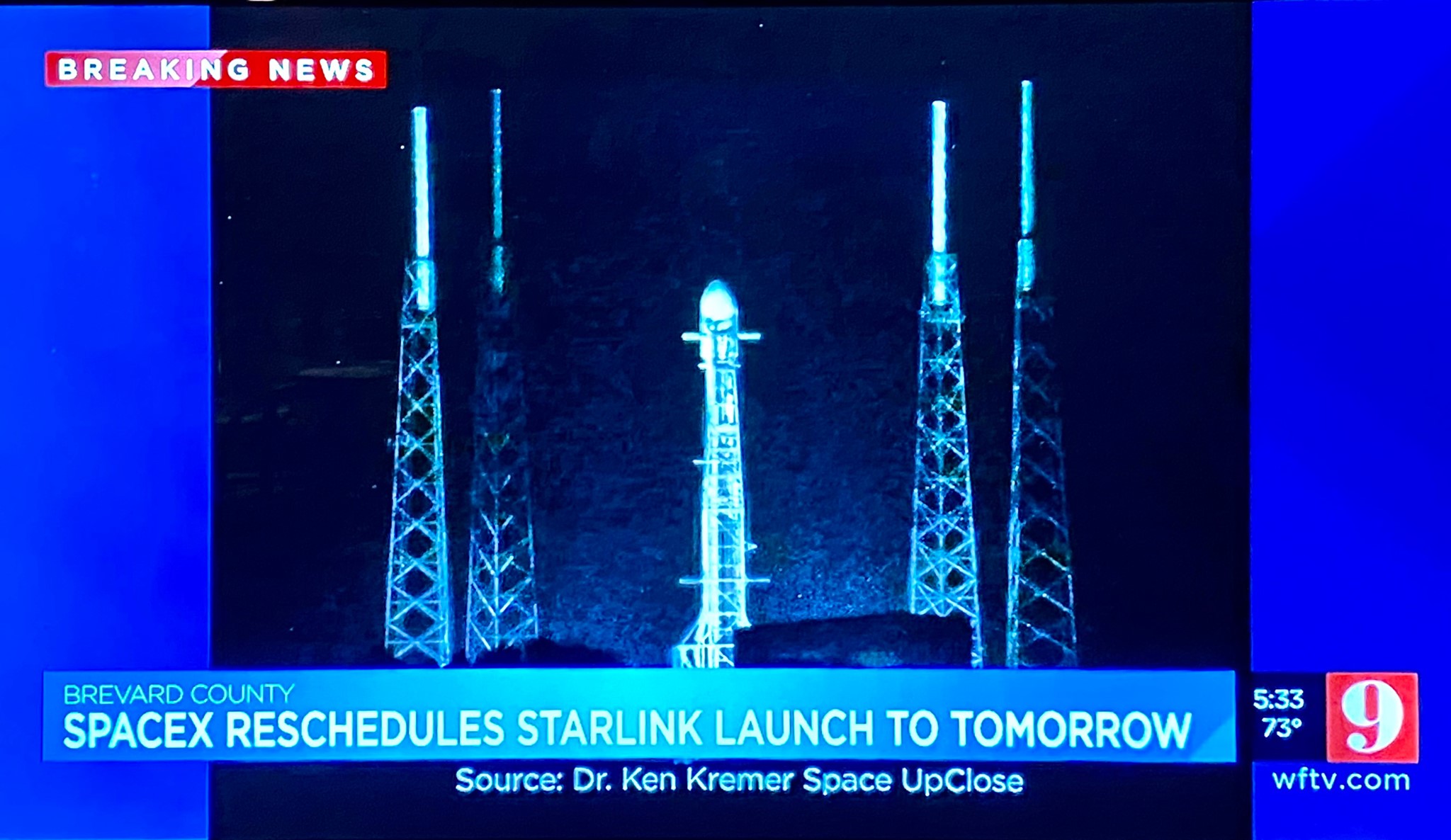
The path to launch was clear following a successful static fire test using a milestone 1st stage booster Saturday afternoon Nov. 21 – after torrential rains poured on the Space Coast – that counts as the first one to be flown seven times!
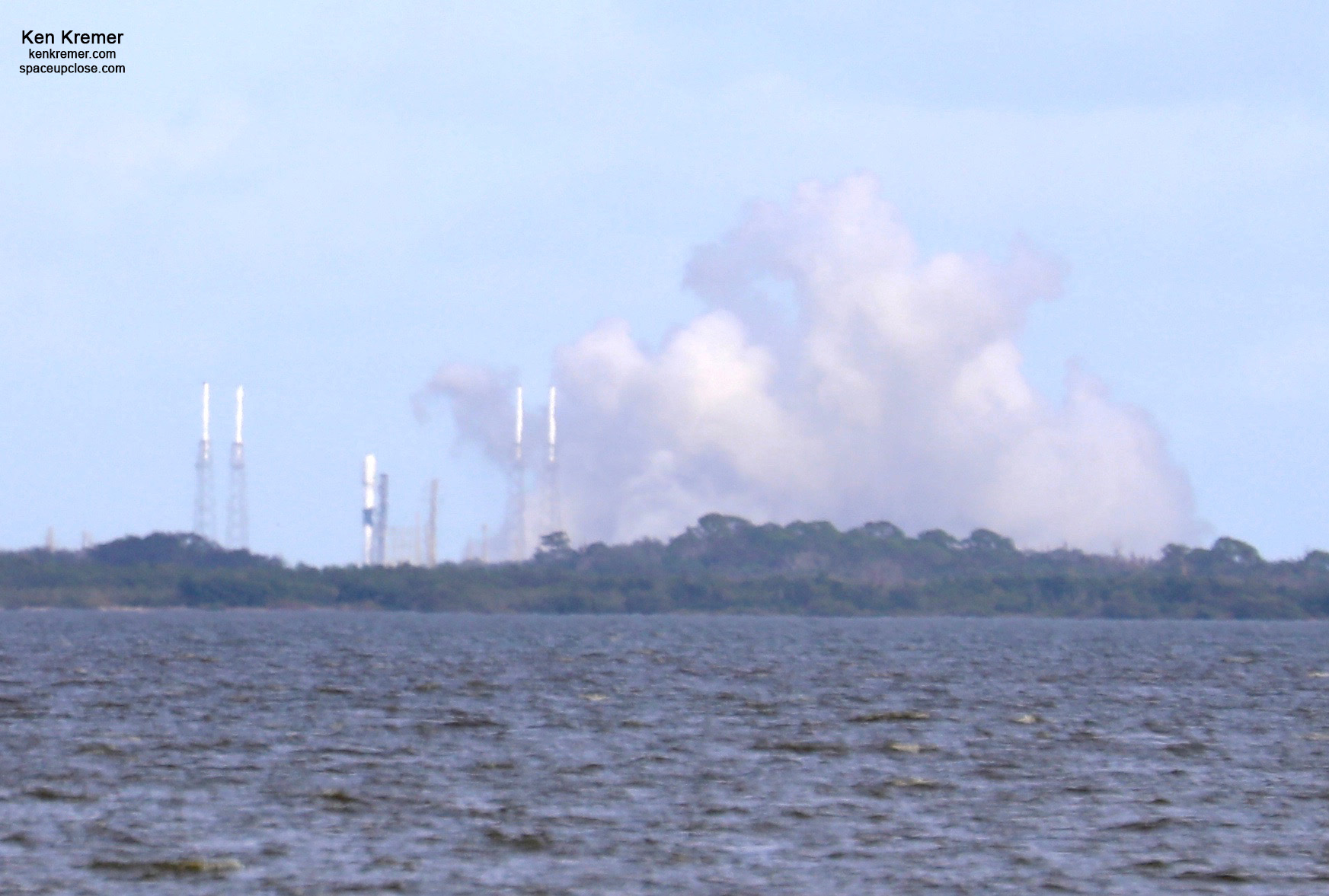
The two stage Falcon 9 rocket stands 229 feet (70 meters) tall.
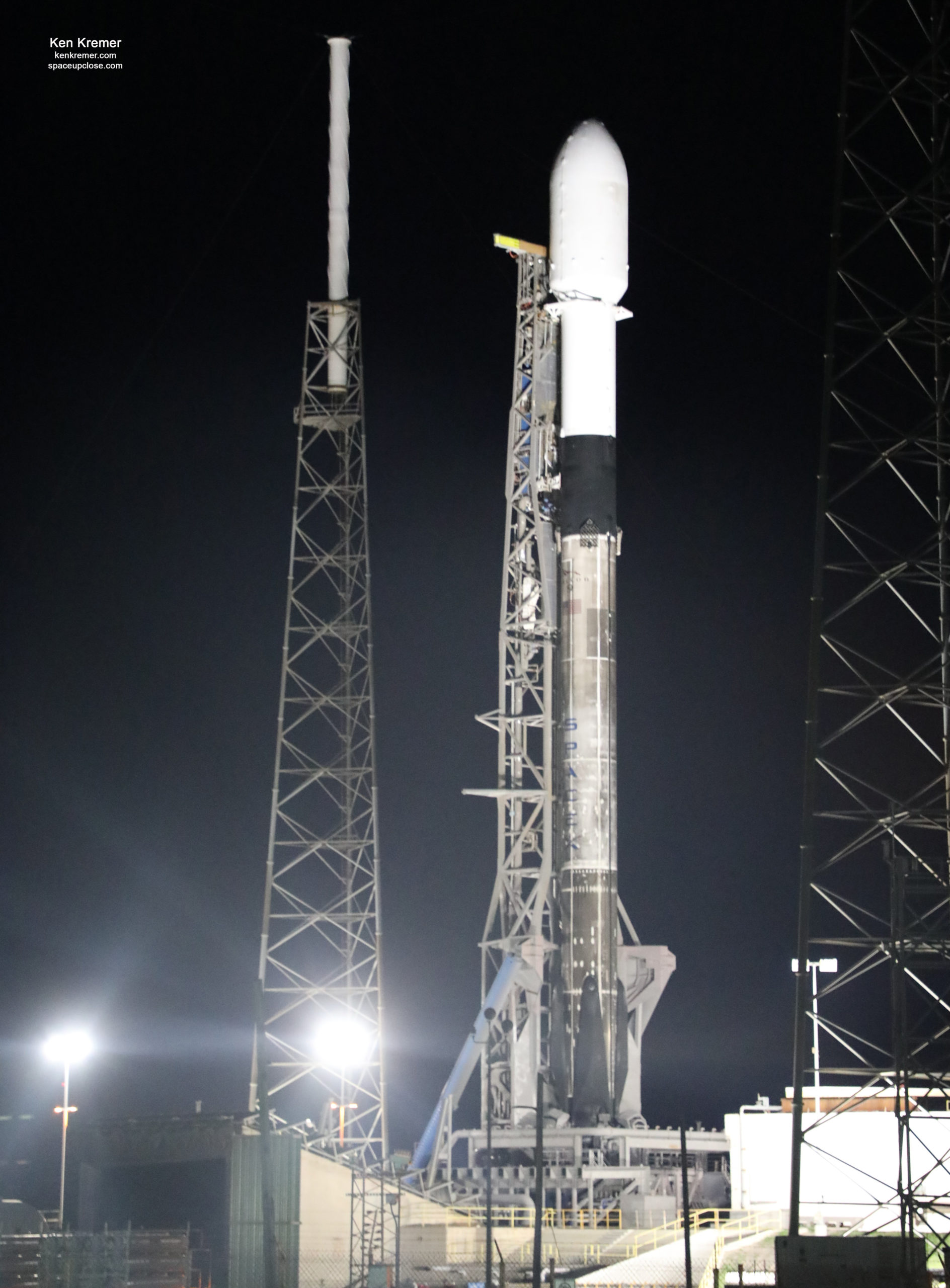
My prelaunch/scrub photos were featured at WFTV ABC 9 Orlando with Starlink testing commentary and WKMG CBS News 6 Orlando on Nov 23/24
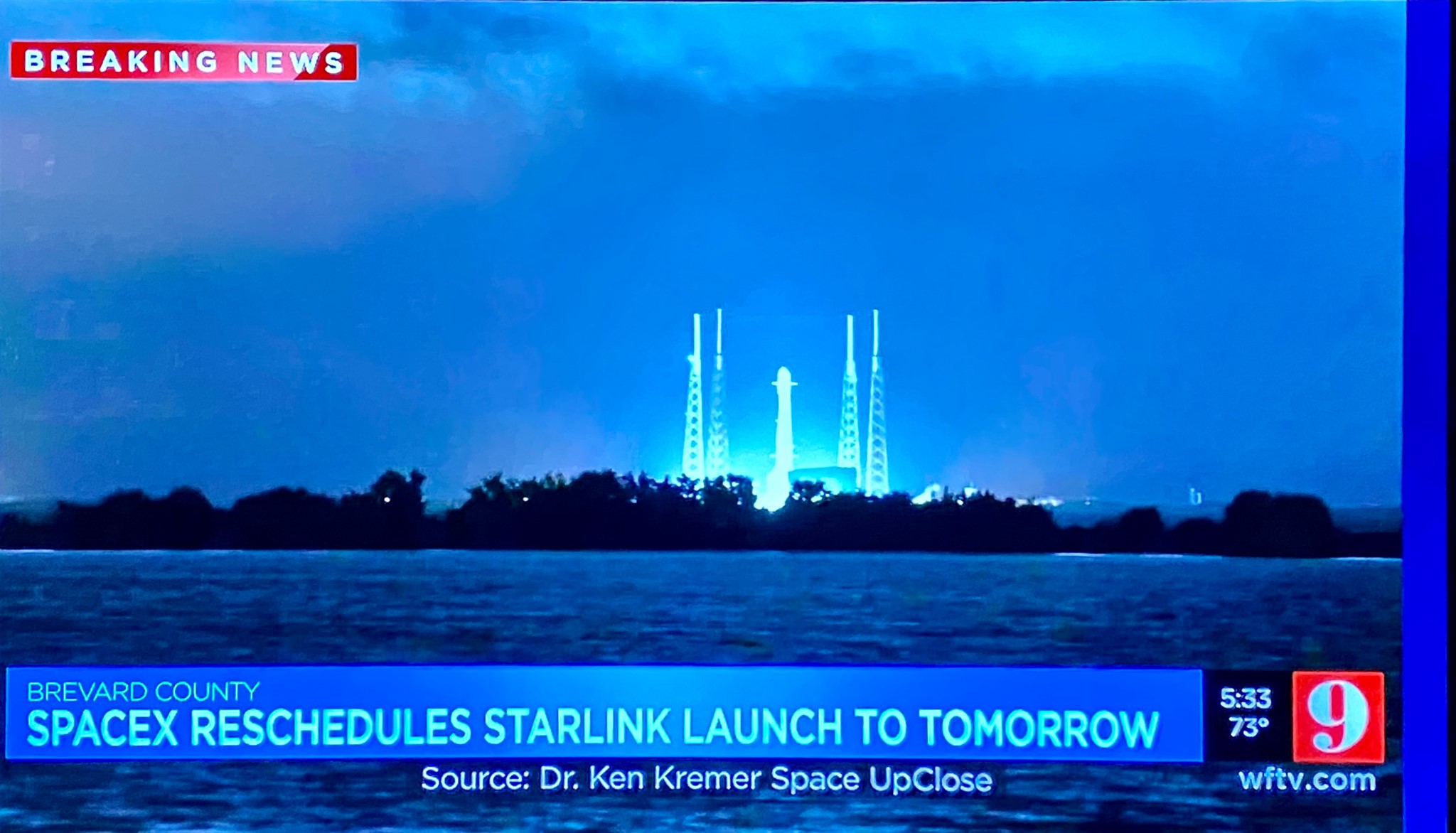
Watch Ken’s continuing reports about Starlink, Crew Dragon, Commercial Crew and Artemis and onsite for live reporting of upcoming and recent SpaceX and ULA launches including Demo-2, Starlink, X-37B, Solar Orbiter, Mars 2020 and more at the Kennedy Space Center and Cape Canaveral Space Force Station.
Stay tuned here for Ken’s continuing Earth and Planetary science and human spaceflight news: www.kenkremer.com –www.spaceupclose.com – twitter @ken_kremer – email: ken at kenkremer.com
Dr. Kremer is a research scientist and journalist based in the KSC area, active in outreach and interviewed regularly on TV and radio about space topics.
………….
Ken’s photos are for sale and he is available for lectures and outreach events
Please consider supporting Ken’s work by donating at Patreon:
https://www.patreon.com/kenkremer
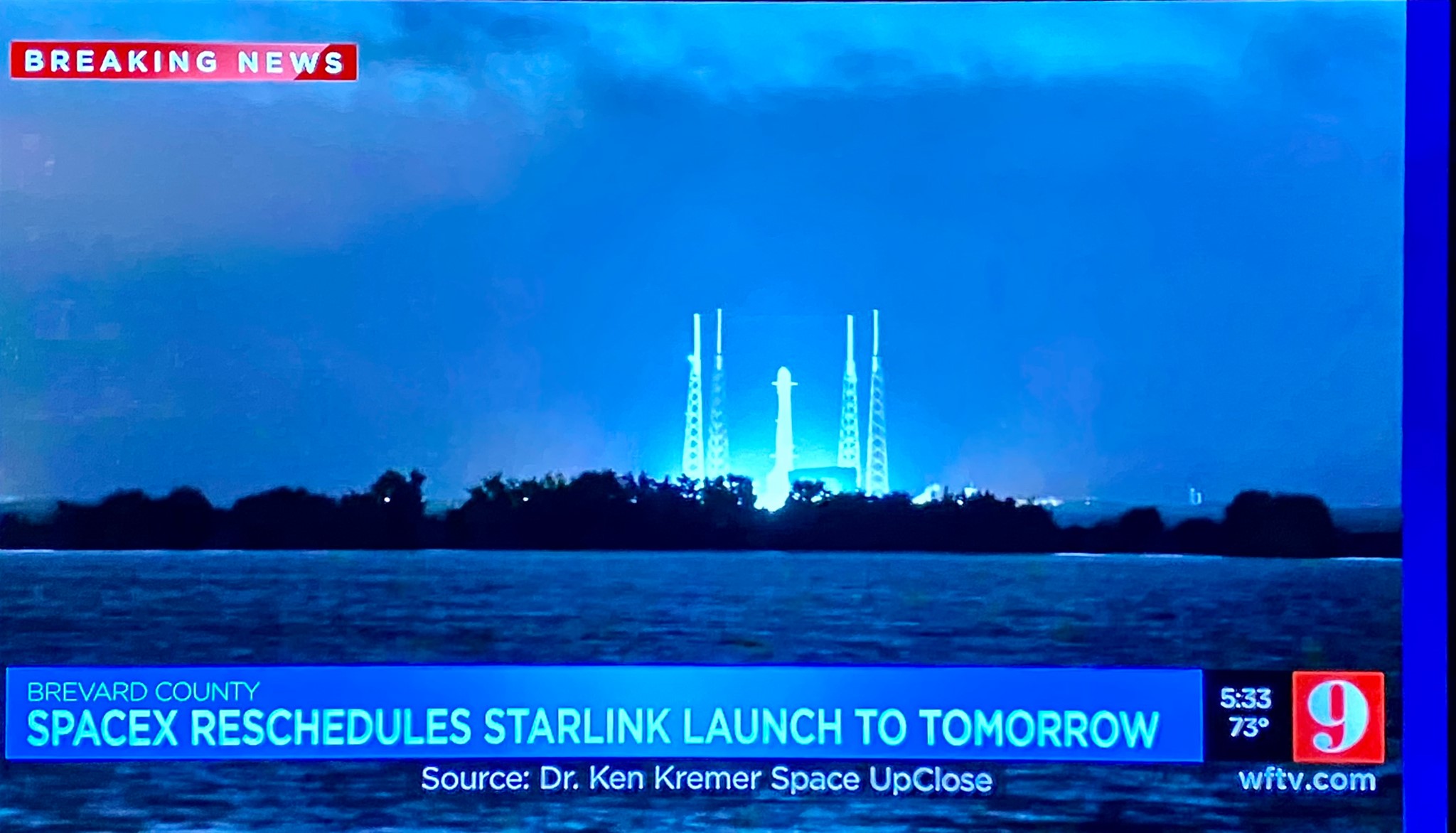
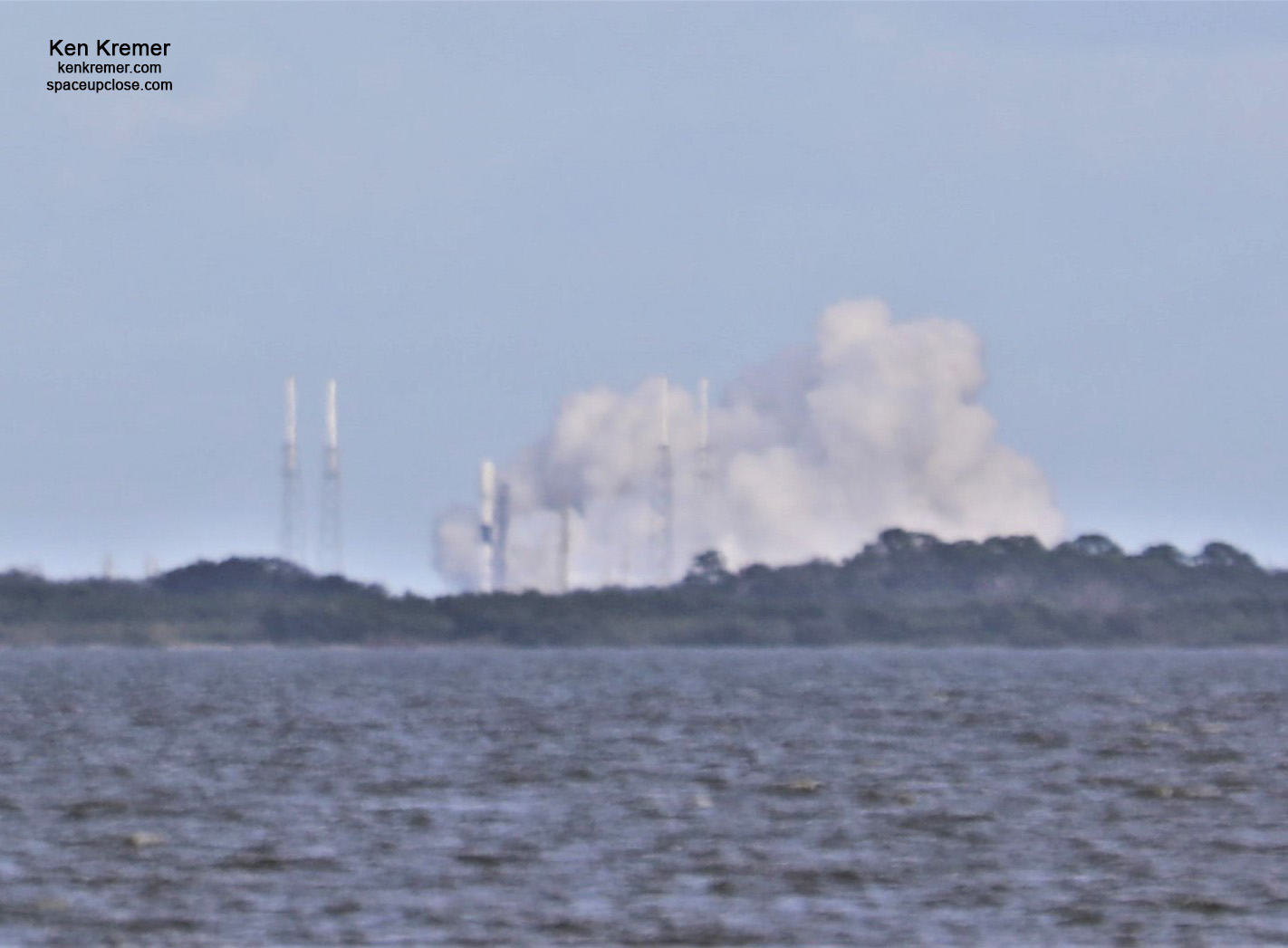
x



